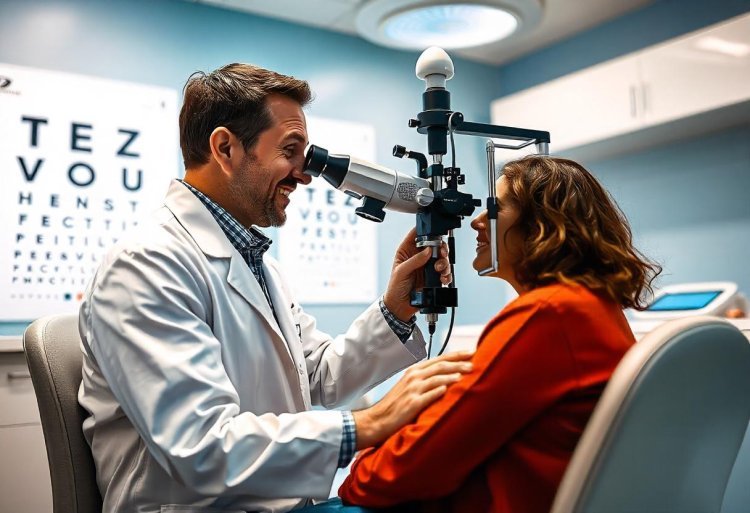What Are the Long-Term Effects of Vision Enhancement Surgery?
Discover the long-term effects of vision enhancement surgeries like evo icl, including benefits, risks, and lifestyle changes for lasting eye health.

Refractive operations such as LASIK, PRK, and evo icl have changed the lives of millions, being a doorway to a goggle-free, lens-free life. While such operations are well-renowned for immediate results in vision improvement, they should also be studied for their long-term impacts. In this article, the authors write about the long-term effects of such surgery, observing positive and negative aspects of long-term eye and vision conditions.
Key Points
- Overview of common vision enhancement procedures and what they aim to achieve.
- Detailed examination of long-term benefits such as long-term vision and quality of life improvement.
- Discussion of potential long-term risks and complications.
- Discussion of post-operative management and lifestyle change for long-term benefit.
- FAQs covering common long-term issues surrounding vision improvement surgeries.
Understanding Vision Improvement Surgeries
Vision correction procedures are a series of operations intended to repair refractive anomalies such as myopia (nearsightedness), hyperopia (farsightedness), and astigmatism. LASIK (Laser-Assisted In Situ Keratomileusis), PRK (Photorefractive Keratectomy), and the relatively newer and rapidly developing evo icl, where a corrective lens is placed in the eye, are most common among these. They are high-tech and require sophisticated equipment and skilled professionals.
How These Surgeries Work
All surgery has its approach but is either reshaping the cornea or correcting its defects for improved quality focal point. LASIK, for instance, uses a laser to make an incision on the cornea and then rebuild the underlying tissue. evo icl, however, does not use reshaping but aims to enhance existing vision by inserting a lens.
Long-Term Benefits of Vision Improvement Surgeries
The reason why eye correction surgery has gained such immense popularity is not just because it can provide a momentary change for the better in vision, but also because it can provide lasting improvement.
Long-Term Visual Improvement
Permanent and stable vision is most important to most patients, and most do not require corrective glasses after their procedures. Studies have shown that over 90% of LASIK patients achieve 20/40 vision or better, the legal requirement for driving in most states.
Quality of Life Improvements
Better vision typically means a better quality of life. Reading, driving, and sports become better and even easier to perform. Moreover, the trauma of lost glasses or discomfort with contact lenses is a whole lot less.
Complications and Risk Over the Long-Term
In spite of the reassuring high success rates, vision-improvement surgery also has built-in long-term risk factors.
Hazards of LASIK
Although infrequent, some patients can experience complications years later from the operation, such as dry eye, halos, and glare, especially at night. Some of them can need re-treatment because there has been a change in vision over a period of time.
Long-Term Effects of evo icl
As a fairly new procedure, the evo icl is safe, but like all procedures, it has risks including cataract development, retinal detachment, and intraocular pressure spikes. The long-term studies continue to extend to learn more about these risks.
Eye protection both during and after surgery prolongs the long-term benefit of surgery. Follow-up regularly, use proper care to protect eyes, and maintain healthy conditions like controlling diabetes.
Changes in Life for Improved Results
Avoid heavy sports at the initial stages and use sunglasses for protecting eyes against UV rays. Balanced diet with sufficient vitamin C and E content keeps retinas in good condition.
Frequently Asked Questions (FAQ)
How long do the effects of LASIK last?
While LASIK is a long-term procedure, changes in eyesight due to age or other medical issues may have to be adjusted for again.
Can evo icl be reversed?
Yes, another advantage of evo icl is that it can be reversed. However, surgery should always be carefully considered.
Are there age restrictions for vision correction surgery?
The patients must be at least 18 years old for LASIK and 21 years old for evo icl, but optimal candidates are those who have not changed their eye prescription in the last year or more.
Information regarding long-term vision correction surgery outcomes informs potential patients more clearly on what is ahead of them, not only after the treatment, but decades later. Even as technology advances and healthcare measures improve, the future of vision correction looks brighter with even improved outcomes alongside safer treatments in the future.
What's Your Reaction?












